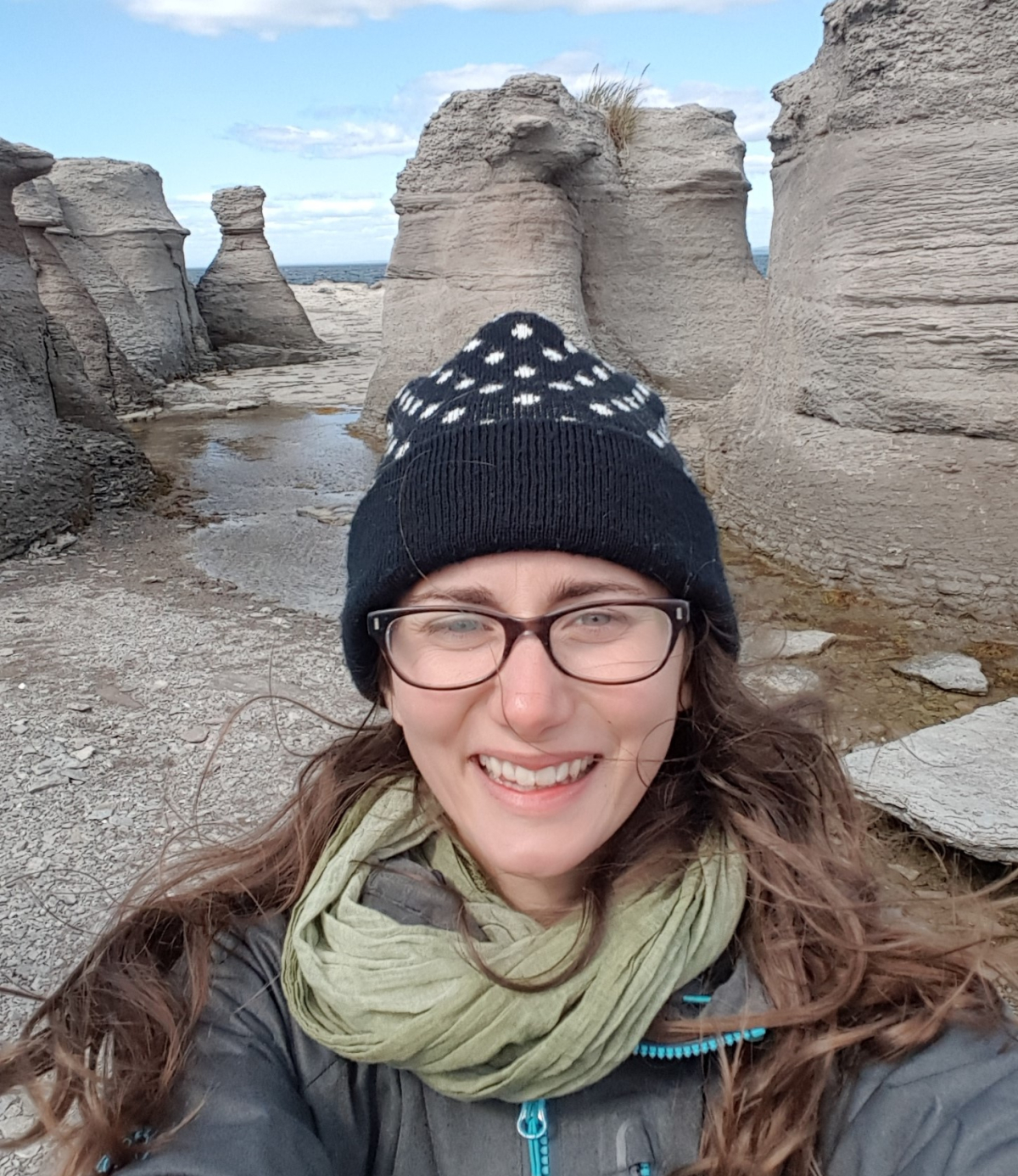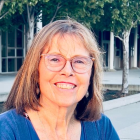Support strong Canadian climate journalism for 2025
As part of a series highlighting the work of young people in addressing the climate crisis, writer Patricia Lane interviews Emily Nickerson, director of Publish What You Pay Canada.
The 1990s were personally tough for me. I spent the decade immersed in action based on climate catastrophe science, trying, and by all accounts failing, to stem the tide. Hardest of all, death and dementia came to my family.
As my awareness deepened about the growing divide between young and old and rich and poor, grief had become a pretty constant companion. I could choose to go further into the abyss of fear and loss or choose the only thing stronger: love. To choose love is to hope. But I had forgotten how. So I made a resolution — one that could last a year or even a decade if need be. I chose to study hope.
Part of my journey is to seek out promising young people who are contending in evidence-based and impactful ways with the climate crisis and engage them in conversations about hope. I am grateful for Canada's National Observer’s commitment to solutions journalism, which provides these determined, joyful and, yes, hopeful young people a voice.
Emily Nickerson is putting the pressure on Canadian fossil fuel and mining companies. The 29-year-old engineering graduate is director of Publish What You Pay Canada, which urges fossil fuel and mining companies to publish how much money they give to governments, their plans for communities during the extraction period and more. “Citizens who have meaningful, accessible information will make the choices their communities need to stay healthy and resilient,” she says.
Originally from New Brunswick, Nickerson studied water resource engineering and is now doing a master of public policy at McGill.
“I chose engineering because I appreciated how the discipline took complex problems and tried to weigh the costs and benefits to find a solution," she says. "I knew it was still largely a male bastion, but all my life I had watched my mother demonstrate that if you knew what mattered to you, you could just go for it, regardless of gender.”
How did you get from engineering to social justice?
Maude Barlow opened my eyes to the risks of privatization and the need for citizens to be more involved in management and decision-making about our natural resources. This was reinforced through my undergrad research work where I worked with a team of Indigenous and non-Indigenous researchers to balance traditional and scientific knowledge in water infrastructure design. I learned that better outcomes for people happen when different types of knowledge drive the design process and where management is rooted in community participation and control. There are better outcomes when communities have the transparency they need to fully participate.
Tell us about your work at Publish What You Pay Canada.
In 2015, PWYP-Canada, a coalition of civil society groups, along with the Mining Association of Canada and the Prospectors and Developers Association of Canada, successfully lobbied the government to pass the Extractive Sector Transparency Measures Act (ESTMA). The lobbying effort succeeded despite opposition from the fossil fuel industry. The act requires Canadian extractive companies to tell us how much money they pay various levels of government in taxes, royalties, infrastructure improvement payments and more for projects in Canada and around the world.

Why do you think mining companies supported this legislation?
Many companies and their investors believe transparency is critical to sound management of natural resources. If communities have questions about how these companies contribute to their economy, this information can help. In turn, citizens can go to their governments and ask for more information — for example, how a mining company’s royalty payments were used.
Does the law apply to the petroleum industry?
Yes. It applies to all extractive companies — mining and oil and gas. After five years, it's time for the government to focus more on compliance with the disclosure requirements.
What difference might having the information make?
Citizens can assess whether the benefits promised are actually occurring. How is my government using this money? Often when projects begin, communities hear many promises of jobs and government revenues. Information on what is actually happening can shift the conversation. People can decide whether the benefits outweigh the costs for their community.
How can older people support your work?
This work is not just a project that gets done and is finished. Funders of civil society have to support us to approach the conversation in a way that is much more organic and long-term.
Listen to our questions. We need your wisdom to avoid mistakes, but we also need room to ask new questions.
What advice do you have for young people?
My parents taught me that my voice mattered, and so I used it. Use yours. Ask the awkward questions: Why do we do things that way? Is there another way to do it to serve different interests that might make life better for people? These questions are only awkward because as we get older, we stop asking them.
Go talk to your MP or your city councillor or the head of an NGO. People in leadership are more willing than you think to spend time understanding your perspective. Do it with others. Coalitions get more done. Learn to work with others who are not the same as you, but who share some common values. We got the government to pass this super important law because we collaborated.
What keeps you awake at night?
What kind of world will my future children and my nieces live in if we do not speed up our pace of change? As we come out of (COVID-19) lockdown, our choices can either result in more inequality, pollution, and dismissal of the suffering these cause or we can choose to move to a better society.
Fortunately, so many good people in government, NGOs and industry are working to align their behaviour with their values and reminding our governments that the people want and expect these changes. I get to work with people in places where things are so unfair, but I see community leaders being effective and working hard. This inspires me to hope.





Comments
It is wonderful to hear about and support young people who are working to protect our environment and mitigate the climate crisis. The author missed an opportunity to amplify Emily Nickerson's work by not giving us more information about the Extractive Sector Transparency Measures Act (ESTMA) and how it has fared since 2015. How has it worked? What has it accomplished? etc. But perhaps this can be accomplished in a further article. Much like the artist, so with the activist, it is the work itself rather than the creator that is of significance. Still, it is good Patricia Lane wrote about Emily Nickerson otherwise I would not have learned that Canada has this act. Thank you.
It is so wonderful to see - and feel - your engagement with important issues. I am most worried that we aren't gaining enough traction with that civic notion. Here in BC we had barely half of the voters turn out for the election. So many important issues on the table but engagement, not so much.